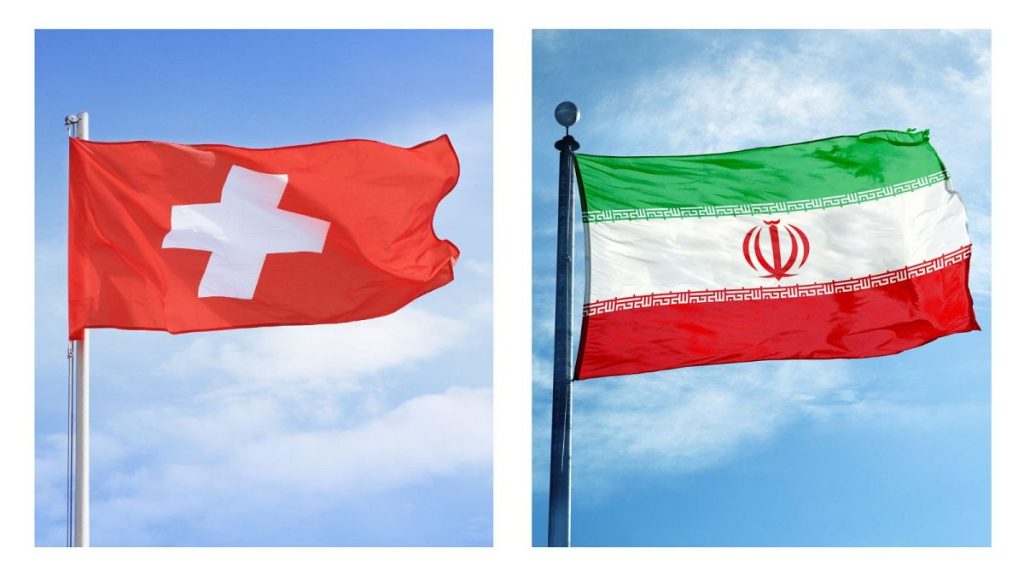The death of a Swiss national in an Iranian prison has sparked international concern and renewed scrutiny of Iran’s treatment of foreign detainees. Iranian state media reported the death as a suicide, claiming the individual, held on espionage charges, took his own life while alone in his cell. The incident occurred at a prison in Semnan province, approximately 110 miles east of Tehran. According to the Iranian judiciary’s Mizan news agency, the detainee requested food from his cellmate and subsequently committed suicide while the cellmate was retrieving the meal. Iranian authorities maintain that all evidence points towards suicide and have documented the circumstances surrounding the death.
The head of the Semnan province’s justice department, Mohammad Sadegh Akbari, confirmed the detainee’s arrest for espionage, asserting the existence of supporting documentation. He further stated that the case was under investigation. The chief justice of Semnan province provided additional details, explaining that the Swiss national shared a cell with another inmate and exploited a moment of solitude to take his own life. Prison officials reportedly attempted to rescue the individual, but their efforts proved unsuccessful. This incident adds to a growing list of cases involving the detention of foreign nationals in Iran, often under accusations of espionage or other security-related offenses.
Western governments have consistently accused Iran of utilizing such detentions as political leverage in negotiations and disputes with Western countries. These accusations describe a pattern of arbitrarily detaining foreign nationals, effectively holding them hostage to exert pressure on their respective governments. The Swiss Federal Department of Foreign Affairs confirmed the death of its citizen and stated that the Swiss Embassy in Tehran is actively engaging with local authorities to ascertain the precise circumstances of the death. They are also providing consular assistance to the deceased’s family. The incident coincides with heightened diplomatic tensions between Iran and Western nations, further complicating the already strained relationships.
This particular case intersects with a recent diplomatic triangle involving Iran, Italy, and the United States. In December 2024, Italian authorities apprehended Mohammad Abedini in Milan on a US warrant. Abedini was accused of supplying Iran with drone technology allegedly used in an attack on a US outpost in Jordan earlier that year, resulting in the deaths of three American soldiers. Shortly after Abedini’s arrest, Italian journalist Cecilia Sala was detained in Tehran, adding another layer of complexity to the situation. While Iranian authorities released Sala after diplomatic interventions from Rome, the incident highlighted the potential for retaliatory actions and the precarious position of foreign nationals in Iran.
Switzerland’s role as the protecting power for the United States in Iran adds another dimension to this case. Following the severance of diplomatic ties between the US and Iran after the 1979 US Embassy hostage crisis, Switzerland has acted as an intermediary between the two countries. This role involves representing US interests in Iran and providing consular services to US citizens in the absence of a US diplomatic presence. The Swiss government’s involvement in this case underscores the delicate diplomatic dance required to navigate the complex relationship between Iran and the West. The death of the Swiss national in Iranian custody will likely further strain these relations and raise questions about the safety and well-being of other foreign nationals detained in Iran.
The recurring pattern of detaining foreign nationals on charges often perceived as dubious by Western governments raises serious concerns about Iran’s judicial processes and its treatment of detainees. Critics argue that these detentions lack transparency and due process, with individuals held for extended periods without access to adequate legal representation or consular support. The latest incident involving the Swiss national will likely intensify calls for greater scrutiny of Iran’s human rights record and its adherence to international legal norms concerning the treatment of foreign detainees. The incident also highlights the challenges faced by countries seeking to maintain diplomatic relations with Iran while addressing concerns about human rights and the safety of their citizens.
The Swiss government’s ongoing efforts to gather information and clarify the circumstances surrounding the death of its citizen are crucial in determining whether the Iranian authorities’ claim of suicide is credible. Independent investigations and access to relevant evidence are essential to ensure transparency and accountability. The international community’s response to this incident will be a critical factor in influencing Iran’s future treatment of foreign detainees and in shaping the ongoing diplomatic dialogue between Iran and Western nations. This case serves as a stark reminder of the complexities and risks associated with navigating international relations in regions with heightened political tensions and differing legal systems.














